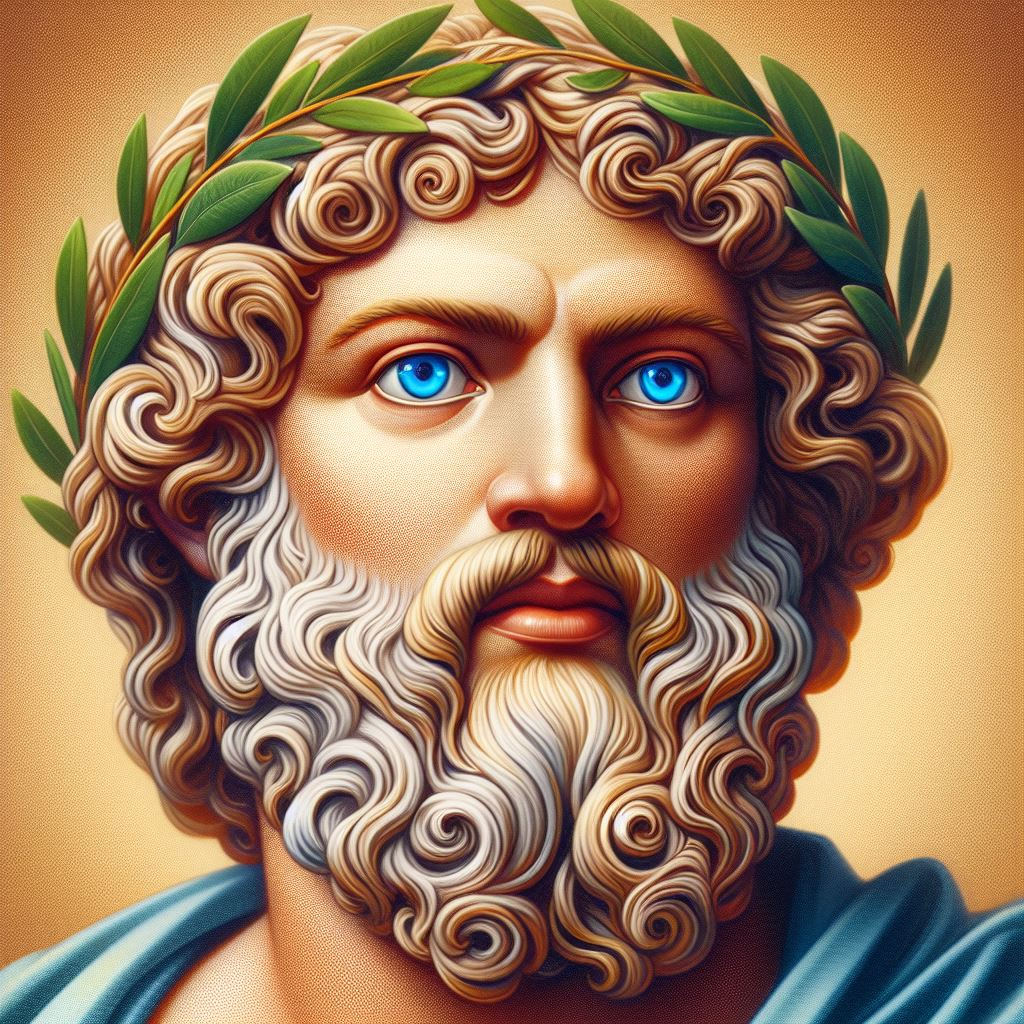The ancient Greek philosopher and mathematician Pythagoras of Samos was a legendary figure preponderantly known for his work in geometry, music theory, and cosmology. He was born around 570 BCE on the island of Samos in the eastern Aegean Sea, to a prosperous family. Pythagoras also founded a philosophical and religious movement that has profoundly influenced Western thought.
Early Life and Education (570-535 BCE)
As aforementioned, Pythagoras was born into an affluent family in Samos. The latter was a prosperous Greek city-state that was notorious for its wealth commerce and cultural encounters with other cultures. Very little is known about his formative years, but historians indicate that he has been educated in a variety of fields, such as mathematics, music, and philosophy. Various sources also suggest that Pythagoras may have traveled as a youth, visiting Egypt, Mesopotamia, and possibly India. This experience led him to embrace ideas from different intellectual traditions that would later shape his philosophical system.
Foundation of the Pythagorean School (530-520 BCE)
Pythagoras left Samos around 530 BCE due to the pro-unrest and moved to Croton, a Greek colony in southern Italy. On Croton, he founded a secretive community called the Pythagorean School which lasted well after he passed away in 490 BCE. The school was a tight-knit community dedicated to acquiring knowledge and moral improvement. It drew many people from different walks of life, including mathematicians, musicians, and philosophers. The basis of Pythagoras’ discovery What made Pythagoras famous was his discovery of a so-called Pythagorean theorem, which states. In a right-angled triangle, the square of the length of the hypotenuse is equal to the sum of the squares on the other two sides. Essentially, this theoretical relationship, recorded earlier by Babylonians, revolutionized the study of geometry and mathematics to paved the way for algebra and calculus.
Music Theory and Harmony (495-480 BCE)
Pythagoras also contributed to the field of music theory. Pythagoras taught that the cosmos was formed and sustained by numbers and that these numbers could be utilized in music to create harmony and equilibrium. He discovered the mathematical relations between the main musical intervals, such as the octave, the fifth, and the fourth. These intervals became the basis of future Western musical theory.
Philosophical Teachings
Pythagoras’s philosophical activity was diverse. He expressed his thoughts on ethics, politics, and metaphysics. The philosopher argued that wisdom and virtue are the highest goals that people should achieve. His followers lived in a commune and followed strict rules. Pythagoras also developed the concept of metempsychosis, according to which the soul passes through many reincarnations until it gets purified and accomplishes enlightenment.
Political Influence and Decline
The Pythagorean School had some political power in Croton. Pythagoras’s followers held several important state positions. However, due to inner and outer contradictions, it was destroyed by a mob in 460 BCE, and the philosopher was forced to migrate to Metapontum, where he died soon after.
Legacy and Influence (460 BCE – Present)
The Philosopher had a significant impact on science. Pythagoras left his followers many writings in which he shared his thoughts on many spheres of knowledge. Pythagoras’ ideas were developing and transforming, and they were also used by his followers who continued the school’s work. His thoughts often resonated in Plato’s, Aristotle’s, and other philosophers’ ideas. Pythagoras’s mathematical discovery became the foundation of modern mathematics, and his words continue to inspire many people around the world.
Controversies and Myths
Pythagoras has been one of the most controversial figures in the history of human thought. Since no reliable historical account of his life was preserved, many utterly different accounts exist. The image of Pythagoras ranges from a scientist and rationalist to a mystical religious leader. There are many myths about Pythagoras’ advent rejected both by historians and philosophers. For instance, legends tell that Pythagoras had supernatural powers, namely the ability to control the natural elements and to talk to animals. Nevertheless, authentic corroborating evidence was never found, so these stories are built on pure imagination.
Conclusion
Pythagoras of Samos was one of the greatest thinkers of antiquity. He was a polymath who made profound contributions to various fields of human knowledge. Pythagorean philosophy determined the future road of human philosophical and scientific thought since it challenged polytheism and myth, thus replacing fictional ideas with rational ones. On the opposite, his arithmological and geometrical theories are developed even today. Therefore, he always stays behind human civilization.


My husband and i were very thrilled when Michael managed to complete his basic research with the ideas he got from your own weblog. It is now and again perplexing to simply continually be giving for free key points which other folks have been selling. So we fully grasp we now have the writer to be grateful to because of that. The most important illustrations you made, the straightforward website navigation, the relationships you will make it possible to engender – it’s many overwhelming, and it’s leading our son in addition to our family do think the idea is thrilling, and that is pretty vital. Thanks for all the pieces!